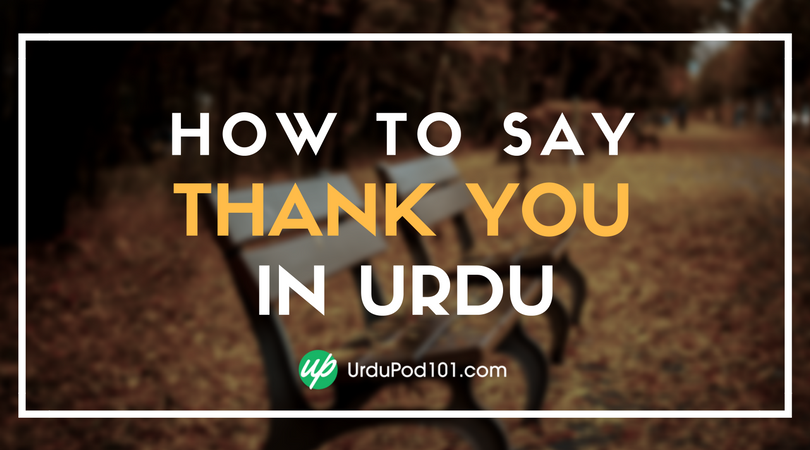
Paulo Coehlo said it well: When you say “Yes” to others, make sure you are not saying “No” to yourself.
Wherever you are in the world, knowing how to say ‘no’ tactfully is an invaluable skill. It’s crucial to have the linguistic tools necessary to assert your identity and keep in balance with others.
In Pakistan, it’s customary to be mindful and courteous while giving a negative statement or response to someone. Due to these cultural nuances, today we’ll teach you not only how to form negative sentences in Urdu but also how to apply them to various real-life situations. In addition, we’ll introduce you to several negative expressions in the Urdu language that you can start practicing right away.
- → Looking for more ways to assert your identity? Then you may also enjoy our vocabulary list of Must-Know Expressions for Agreeing and Disagreeing!

 Table of Contents
Table of Contents
- How to Negate a Statement
- Giving a Negative Response to a Question
- Other Negating Words and Phrases
- Double Negatives
- Conclusion
1. How to Negate a Statement
The basic words of negation in Urdu are: نہ (nah) – “no“ and نہیں (nahin) – “no” / “not.“ In this section, you’ll learn how to use these words in different sentences to impart the proper meaning to your interlocutors.
Generally speaking, the most common way to make a sentence negative in Urdu is:
Noun + نہیں (nahin) + Conjugated Verb
This is a simple formula that requires no additional changes to the sentence nor any further negation words.
Urdu Negation in Simple Present Tense
وہ سکول جاتا ہے۔
Woh school jata hai.
He goes to school.
وہ سکول نہیں جاتا ہے۔
Woh school nahin jata hai.
He does not go to school.
In the negative sentence, you can see that the Urdu word نہیں (nahin) is placed after the noun سکول (school) and before the conjugated form of the Urdu verb جاتا (jata).
Urdu Negation in Simple Past Tense
وہ لاہور گئی۔
Woh Lahore gayi.
She went to Lahore.
وہ لاہور نہیں گئی۔
Woh Lahore nahin gayi.
She did not go to Lahore.
In the negative Urdu sentence above, you can see that the word نہیں (nahin) is added after the noun لاہور (Lahore) and before the conjugated verb گئی (gai).
Urdu Negation in Future Simple Tense
ہم رات کا کھانا کھائیں گے۔
Hum raat ka khana khayain gay.
We will have dinner.
ہم رات کا کھانا نہیں کھائیں گے۔
Hum raat ka khana nahin khayain gay.
We will not have dinner.
Again, you can see that the word نہیں (nahin) is added after the noun رات کا کھانا (raat ka khana), meaning “dinner,” and before the conjugated verb کھائیں (khayain).

2. Giving a Negative Response to a Question
Having learned the fundamentals of negation in the Urdu language, let’s now look at how to respond to questions by negating them in Urdu. In this context, you can take one of two approaches:
1) You can be courteous enough to refuse politely.
2) You can give an upfront “No” to avoid any such invitations in the future.
Giving a Polite Negative Response in Urdu
If you find yourself caught in a formal situation where you want to say no to an invitation, it’s always recommended that you refuse it politely. Otherwise, the other person may take offense.
Let’s see how to do this…
Question:
کیا آپ میرے ساتھ رات کا کھانا کھائیں گے؟
Kia aap mere sath raat ka khana khayain gay?
Will you have dinner with me?
Response:
معذرت خواہ ہوں، میں ذاتی مصروفیت کی وجہ سے ایسا کرنے سے قاصر ہوں۔
Maazrat khwah hun, mei zati masroofiyat ki wajah se aisa kernay se qasir hun.
Sorry, I am unable to do so due to personal commitments.
In this scenario, someone asks you to have dinner with him in Urdu and you wish to decline politely. Here, the most formal and recommended way of declining is to add the Urdu phrase, معذرت خواہ ہوں (maazrat khwah hun) to the beginning of the sentence. This phrase is equivalent to the English word “sorry” and can be used by both male and female speakers without any changes.
The next sentence—میں ذاتی مصروفیات کی وجہ سے ایسا کرنے سے قاصر ہوں۔ (Mein zati masroofiyat ki wajah se aisa kernay se qasir hun.)—will allow you to decline an invitation without offending the other person.
- → For more options, you can check out our vocabulary list Ways to Reject an Invitation.
Giving a Flat Negative Response in Urdu
Now, it’s time to learn how to assert yourself while refusing an unwelcome invitation and preventing future invitations.
Question:
کیا آپ میرے ساتھ رات کا کھانا کھائیں گے؟
Kia aap meray sath raat ka khana khayain gay?
Will you have dinner with me?
Response:
نہیں، آپ اپنے کام سے کام رکھیں۔
Nahin, aap apne kaam se kaam rakhain.
No, mind your own business.

In this sentence, you can see that the word نہیں، (nahin) serves as a sort of blunt refusal that does not have any preceding courtesy word or phrase. The remaining part of the sentence—آپ اپنے کام سے کام رکھیں (Aap apne kaam se kaam rakhain.)—is an indication that you’re not interested in any such future invitations.
3. Other Negating Words and Phrases
Besides نہ (nah) and نہیں (nahin), there are a few other expressions that can be used for negation in Urdu. Here are just a few more negation words in Urdu you should know:
نہ یہ نہ وہ (nah ye nah woh) – neither…nor
This phrase is equivalent to “neither…nor” in English. Here’s an example for you:
مجھے نہ یہ پسند ہے نہ وہ۔
Mujhay nah ye pasand hai nah who.
I like neither this nor that.

(kabhi nahin) – never
میں تمھیں کبھی نہیں بھولوں گا۔
Mei tumhain kabhi nahin bhoolon ga.
I will never forget you.
کچھ نہیں (kuch nahin) – nothing
This is a versatile phrase that can be used to form a variety of negative sentences in Urdu. It’s used to negate a thing. Here’s just one example:
میں نے صبح سے کچھ نہیں کھایا۔
Mei ne subah se kuch nahin khaya.
I have eaten nothing since morning.

(koi nahin) – nobody
This phrase of Urdu negation refers to people. Here’s an example:
یہاں کوئی نہیں آیا۔
Yahan koi nahin aaya.
Nobody came here.
کہیں نہیں (kahin nahin) – nowhere
The word کہیں نہیں (kahin nahin) is used for the negation of a place:
وہ کہیں نہیں گیا۔
Woh kahin nahin gaya.
He went nowhere.
4. Double Negatives
While conversing with native Urdu speakers, you’ll notice that they often use double negatives in their conversations. To understand how double negatives are used in Urdu, you must first learn how to use the word نا (na) as a prefix to negate adjectives and verbs. For example:
- خوش (khush) – “happy” ➜ ناخوش (nakhush) – “unhappy”
When these negative adjectives and verbs are used in tandem with the word نہیں (nahin), the latter word cancels out the negative adjective or verb to make it positive. See the use of the word ناخوش (nakhush) / نہیں (nahin) in the following sentence to better understand this concept:
وہ مجھ سے ناخوش نہیں ہے۔
Woh mujh se nakhush nahin hai.
He is not unhappy with me.
Ultimately, the sentence is used to negate the already reported negative adjective ناخوش (nakhush). In other words, it indicates that the speaker is on good terms with the person being spoken about.
Here’s another example:
مجھے سمجھانا ناممکن نہیں ہے۔
Mujhay samjhana namumkin nahin hai.
It is not impossible to make me understand.
This sentence cancels out the negative adjective ناممکن (namumkin). In other words, it is possible to explain.
وہ کرکٹ ناپسند نہیں کرتا ہے۔
Woh cricket napasand nahin karta hai.
He does not dislike cricket.
In this sentence, the verb پسند کرنا (pasand kerna), meaning “to like,” is made negative by adding the نا (na) prefix. After the addition of the prefix, its infinitive form becomes ناپسند کرنا (napasand karna), meaning “to dislike.” The word نہیں (nahin) is used with the conjugated form of the negative verb ناپسند کرنا (napasand karna) to further negate it.
In other words: He does like cricket.
5. Conclusion
In this article, you’ve learned the essentials of Urdu negation. You can now…
- …negate sentences in Urdu.
- …give negative responses to questions.
- …apply a variety of negative Urdu words and phrases to sentences.
- …begin practicing double negation in Urdu.
- …negate verbs and adjectives using the prefix نا (na).
Do you still have any questions? Let us know in the comments, and we’ll get back to you as soon as possible!
In the meantime, make sure to continue exploring UrduPod101.com. We are a rich repository of useful resources that will hone your integrated Urdu language skills. With a free lifetime account, you’ll have access to an Urdu dictionary, grammar and pronunciation guides, vocabulary lists, lessons on useful phrases and expressions, and more.
Very Happy Urdu Learning!










